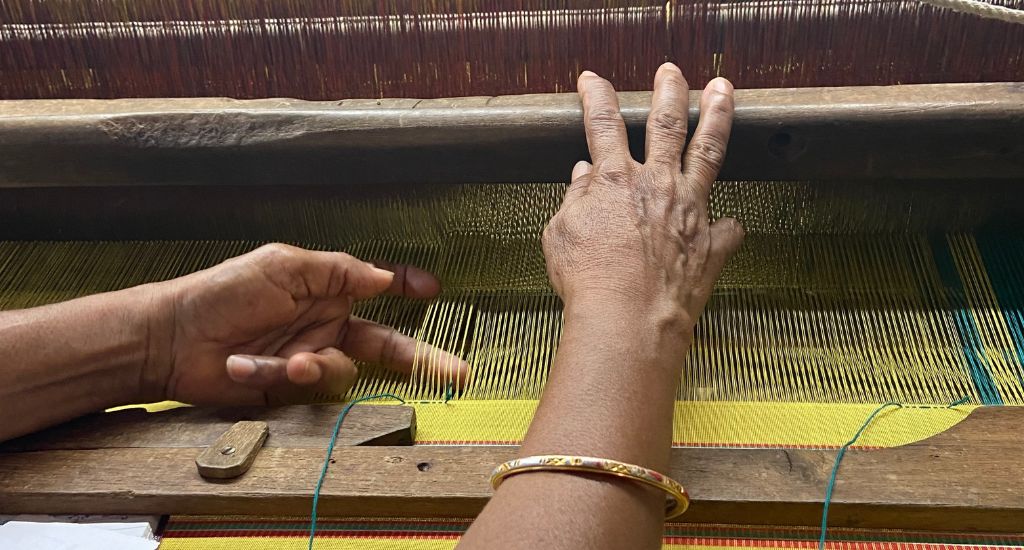Climate change looms over Udupi sarees
Amulya B
May 03, 2023
Karnataka
The production of Karnataka's acclaimed Udupi sarees has been impacted by climate change. Weavers complain about the rice gruel starch, an important ingredient of production, drying up too quickly as the temperatures soar in Dakshina Kannada district.
Climate change is having a global impact, from triggering unseasonal rains and storms to causing prolonged dry spells and droughts. It has not spared even the famous Udupi sarees that are woven in Karnataka and are acclaimed worldwide. This summer, in March to be more precise, weavers watched in horror as the starch they use in their looms dried too quickly, not allowing them to separate the strands of thread that are finally strung together to make the sarees.
Starch made from boiled rice gruel is an important component in the weaving process of the sarees. Weavers apply them to spin their yarn. “If you apply too little, the thread breaks. If you apply too much, the threads stick to each other and the saree gets damaged,” said Shantha, a veteran weaver of Udupi sarees.
As a member of the Talipady Weavers’ Society in Kinnigoli, some 32 km from the port city of Mangalore, she has been weaving Udupi sarees for the past four decades. But nothing had prepared her for what the weavers faced in the oppressive heat of this March.
Amulya B is a multimedia journalist, writer and translator based in Bengaluru. Her stories explore the intersection of culture, society and technology. She is the winner of Toto Funds the Arts for creative writing and Laadli Award. She is a Rural Media Fellow 2022 at Youth Hub, Village Square.






